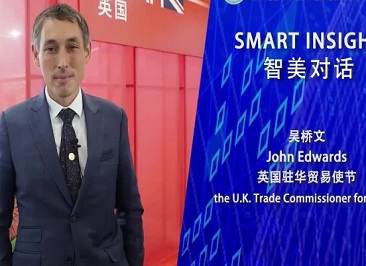Pollution trading market to be boosted
Updated:2014-09-01
Xinhua
While attending an auction to obtain China's first pollution permit in 2008, Tian Yu admits he lacked even the foggiest notion of what he was bidding on.
"Frankly speaking, the other participants and I knew little about what pollution permit trading was at the time," he says.
Though Tian, a manager for a pharmaceuticals company in Tianjin, has since gained more knowledge on the pilot emissions trading program, most companies that would benefit from the system have not.
Special guidance and a strong push from the central government is necessary to make more companies join the trading mechanism, said Tian.
Tianjin is one of the 11 pilot cities and provinces across the country for such trading platforms. But the pilot trading market differs from place to place with varying regulations, including the price.
Compounding the problem, the trading market has grown stagnant. In Tianjin only one deal worth 155,000 yuan (25,200 U.S. dollars) was reached since the start of the program.
With plans to enact the emissions scheme across the country by 2017, the State Council issued a guideline Monday that will require pilot regions to establish mechanisms for purchase and trade, ideally laying a solid foundation for the nationwide program.
"The timely guideline is what we have been looking forward to for a long time," said Zhao Enhai, deputy head of the Tianjin Environmental Protection Bureau on Friday.
Tianjin will promulgate a local corresponding regulation for promoting the trading as soon as possible, said Zhao.
A firm gets an authorized limit on the amount of a pollutant that may be emitted. In China, the limit will be sold to firms in the form of emissions rights which represent the right to emit a specific volume of a specified pollutant.
The pollutants mainly include sulphur dioxide, nitrogen oxide, chemical oxygen demand (COD) and soot.
In other pilot places, pollution permit trade has been flourishing.
By the end of July, the pollution permit trade in the coal-rich Shanxi Province had reached 380 million yuan with the participation of 410 companies since 2010, according to the provincial environmental protection department.
The accumulative trade volume in Inner Mongolia Autonomous Region and Chongqing Municipality have both exceeded 80 million yuan.
In Hubei Province, only new company construction projects approved by the provincial environmental protection department are required to participate in the trade, said Xu Sheng, a manager of the Hubei environmental resource trade center.
Such trading has not been applied to projects approved by municipal environmental authorities in the province, which affects the fairness of the mechanism, said Xu.
"Exploration in the pollution permit trading market is under way. Legislation should be considered at the national level to ensure the sound and fair development of the market," said Wang Jinnan, vice head of the Chinese Academy for Environmental Planning.
Video

John Edwards, the UK trade commissioner for China, praised Chongqing over its rise as a burgeoning center in intelligent manufacturing.





